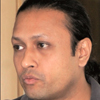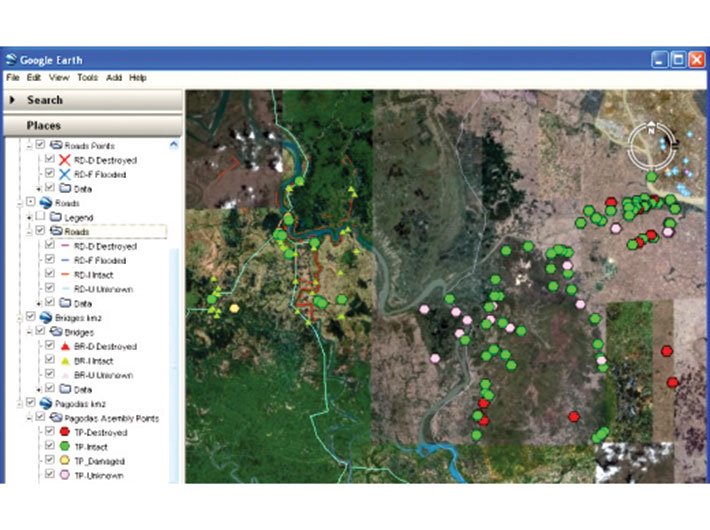Governance needs to move from digitisation of records to giving citizens the tools to generate and capture their own data and use it in innovative ways
In itself a piece of data is discrete and inert. So a number remains just that, an isolated strand. But string numbers together and it has enough potential to become intelligent, almost like the way potential energy turns into explosive kinetic energy. Inert data suddenly transforms into information the moment you give it a context. Give it a perspective and it becomes knowledge. There are broadly two narratives surrounding data and information currently doing the rounds in India.
The dominant one, quite frequently found echoing in the corridors of power, perceives data and information in simply technical terms of digitisation of legacy documents, creating web and mobile interfaces, touch points if one may use the prevailing jargon, for its access and hoping that people will start finding the experience somehow better and superior to the existing one dependent on the vagaries of human fickleness, subjectivity and bureaucratic hurdles. Simple as it is, even simplistic maybe, but that is the essence of practically all electronic governance and mobile governance initiatives in India. Of course, there are notable exceptions to this thumb rule: the Aadhaar project is a prominent one with a much larger socio-political and economic impact and footprint that keeps expanding to include everything from subsidies to mobile payments.
The second narrative, one that is gaining increasing traction in public discourse and has a lot of subversive possibilities in its own right, looks at data and information from the other end of the pipe. It starts with people and tries to deal with data, information and knowledge from the perspective of creating collective and community-based intelligence frameworks that leads to action, agency, empowerment and entrepreneurship. It assumes, and rightly so in my opinion, that people are the best creators of actionable knowledge and given the right tools have the ability to record, manage and use all sorts of data points to generate frameworks of understanding that can simultaneously engage, interact and contest with formal institutional mechanisms. A good example, from the analog world, would be the manner in which social audits and citizen data are contesting the official narratives in the domains of education and rural employment.
The digital counterpart of this thought process looks at creating several small and micro data hubs, each individual is a potential node, and linking all of them up in a series of continuously evolving and mutating platforms. In short, this approach in a decisive and fundamental manner argues that the whole will always be greater than the sum of all parts.
It is a pure play digital worldview, one that is being played out at different levels already: the taxi and auto aggregator models unveiling themselves in various cities and towns are a specific manifestation where entrepreneurship, physical mobility, social discovery and business models are meshing together in quite a seamless manner. In itself, each piece is limited. But when they come together the whole is a lot bigger.
It is in this context that the recent nibbles of Narendra Modi’s core team trying to look at data and information from the other end of the pipeline is interesting. One clear example is the way some of the key policy-makers in Team Modi are watching with interest former Google India products head Lalitesh Katragadda’s ‘Next Billion’ open platform where data will be crowdsourced and used. It is still unclear if the project is watched with interest by Modi and his team as just a sandbox attempt or as a possible paradigm shift in the way the government will start looking at data, information and knowledge.
To provide a clear context why Katragadda’s ‘Next Billion’ platform might transform the way people will start looking at, and using, data to make their lives better and hopefully in the process get a better substantial control over it, some understanding of what he did in Google is required. He is credited with building Google Map Maker, a tool that allows ordinary people to aggregate data points in streets to make them discoverable. The efficacy of the tool in building an actionable collective and community driven intelligence framework was quite critically demonstrated in the aftermath of Cyclone Nargis in 2008 that devastated large parts of Myanmar dislocating millions of people. When the United Nations wanted to rush in relief supplies, medical and emergency personnel, it just didn’t know where to send them: there were no maps of roads, hospitals, utility hubs. Forty volunteers from Google, including Katragadda, plugged into the social media of Myanmar to find out people using the Map Maker tool. By the end of four days, 120,000 kilometres of roads, 3,000 hospitals, logistics and relief points were discovered. The Map Maker is a new-age digital product, a tool, which combined computational geometry, gesture recognition and machine learning. It eventually led to the creation of Google Maps.
Katragadda is convinced that crowdsourcing data and creating open source tools that lead to creation of technology and standard agnostic platforms is the way forward. “When you talk about an information platform for the next billion, Aadhaar is a very important tool. But a lot more can be done to make information more useful and powerful, for everyone,” Katragadda recently told a newspaper. “Aadhaar is the enabling infrastructure, and the government is looking at other tools as well. But there is a need to build a more enabling infrastructure. Today, all that people like, say, slum-dwellers have for identity is a little Aadhaar slip or a voter card. How about an information system that lets you know who these people are and track what they do? This might even solve the problem of finding a reliable maid or a trustworthy driver.”
Katragadda’s assertions translate into three simple thumb rules: give people intuitive digital tools to mine their own data, let them play with it and give them technology and standard agnostic platforms to display their collective and community intelligence. The trust, credibility and authentication – critical pillars of any data-driven product or service – are provided by a combination of people ratings and machines, something that is now common practice in the new-generation digital data driven business models from bed-breakfast and homestays service provider Airbnb to taxi aggregator services. An interesting aside is that Katragadda is already advising both the central and Andhra Pradesh governments on how to redesign fibre optic grids and networks to make high-speed internet available to all at reasonable price points, one of the main goals of Digital India.
Katragadda’s approach towards citizen-centric data generation, community engagement and collective intelligence is not new. Those involved with civil society organisations will see a lot of parallels with the techniques and methods of participatory rural appraisals (PRAs), which gave people the power to collect data, like where hand pumps are being put up, to empower themselves and the communities, and quite decisively question formal and informal structures.
The difference between PRA and digital platforms for citizen data as tools is the sheer scope for amplification and real-time impact available with the latter. The number of people using a cab aggregator service can be one data point, just as the number of women using, or crucially not using, a cab aggregator service on Friday nights can be another simultaneous and impactful data point. Both contribute to community knowledge and collective intelligence in different ways. Citizen-centric data generation and use can be the way forward for a decentralised and community-based governance structure. To put it simply, let people play with it and they will figure it out. The question is will the political elite allow it?

